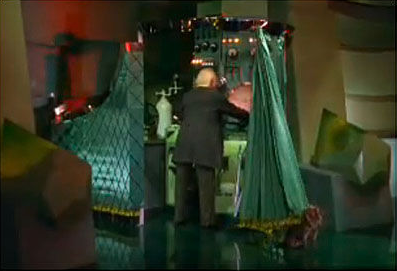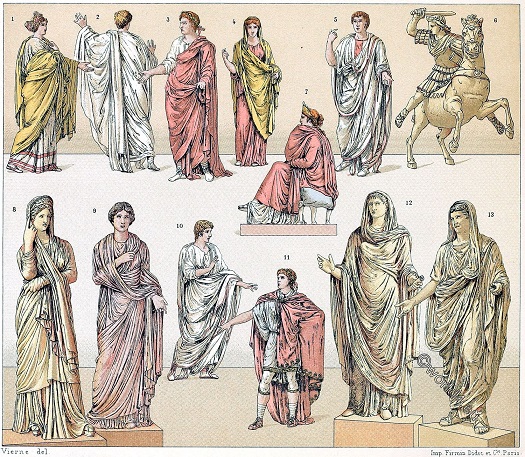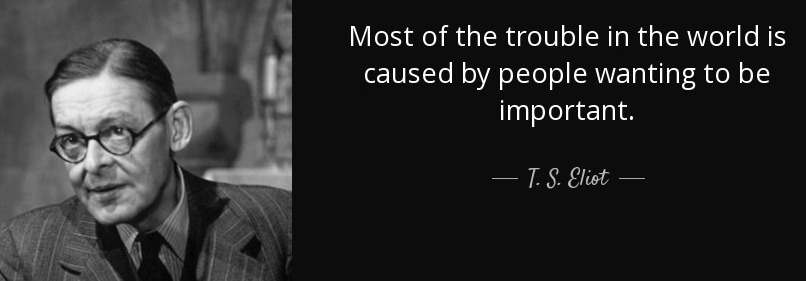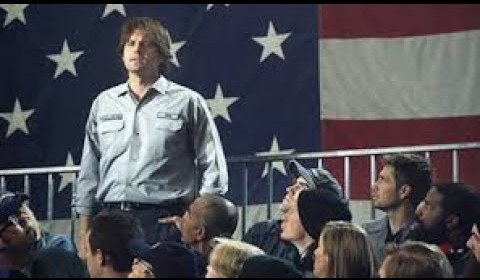|
home | what's new | other sites | contact | about |
|||||||||||||||||||
|
Word Gems exploring self-realization, sacred personhood, and full humanity
Human Potential Emerson
return to "Human Potential" main-page
Matthew 22:37-40 37 And he said to him, “You shall love the Lord your God with all your heart and with all your soul and with all your mind. 38 This is the great and first commandment. 39 And the second is like it: You shall love your neighbor as yourself. 40 On these two commandments depend all the Law and the Prophets.” Loving God "with all your mind", Jesus said, is part of the “first and great commandment.” Earlier in life, during my decades of church-going, not once can I recall this scripture, concerning the importance of the mind, being taught. Is this studied silence not strange since it's billed as the “first and great commandment"? One would think that "first and great" should mean center stage. However, dozens or scores of times, another verse, which seemed to support mindlessness, was referenced and emphasized: Proverbs 3:5-6 5 Trust in the Lord with all your heart and lean not on your own understanding; 6 in all your ways submit to him, and he will make your paths straight. We are immature, we have a dark side. And one must be ever mindful of the influence of base passions. But to suggest that this verse becomes universal general rule, offering blank-check mandate that we set aside rational capacities for critical thinking, is just a cheap, and hardly disguised, ecclesiastical totalitarian power-play. “If you do your own thinking, that’s how Satan deceives you" -- "much better," they teach, "to let Dear Leader at church do your thinking for you, surrender your brains at the door." 'don't look behind that curtain'
Well, there is no Satan, this is an ancient fable; neither is there legitimacy for top-down, command-style church hierarchies. Almost everything they teach is errant -- and condemned on the other side of life -- and their self-serving warning about thinking one's own thoughts is just fear-based, empty god-talk -- a bizarro-version of what Jesus represented. Editor's note: In the old Superman comics, there existed an alternate world wherein everything was done backwards. They called it the “bizarro world.”
some of this mountebank promotion, with even one's modicum of maturity, is not hard to recognize; but, ‘how can we fool’em today’ continues unabated on the other side, albeit in more sophisticated guises It’s been said that oppressive regimes signal what they fear most by what they venomously lambast – and what they fear most is one’s mental evaluative capacities arrayed against their flim-flam “holy doctrines,” their "pomp and revenue" charade of godliness. In one day, like the Wizard exposed by Toto, they'd all be out of business if people really knew their own sacred selves. trust yourself - that is, your true self, linked to God Many years ago, when I first began to investigate psychic-mediums, I would receive the same message via several different psychics: "You're not trusting yourself enough!" "You need to believe in yourself a whole lot more!" "You need to go within and listen to yourself!" This barrage of similar message began to irritate me. I'd always considered myself a confident, independent spirit, and so this recurring mantra to trust myself seemed misplaced. But I would yet perceive that Spirit advisors had an important lesson for me. trusting oneself, in the right way, is not what we might think, has little in common with popular images of confidence, boldness, and other expressions of bravado Trusting oneself, the kind the Spirit Guides were talking about, has to do, ironically, with an approach that might come from Proverbs 3:5, “lean not on your own understanding.” What does this mean? Authentic spirituality, in its basic essence, is not about doing religious things, performing charitable works, or even attempts to live a good life – these might be the results of spirituality but not its essence. Authentic spirituality derives from centering, aligning, one’s mind and inner person with the Great Spirit. isomorphically Without this one-to-one foundation, we can act as confident as a comicbook hero, serve others, or appear to be religious, as much as we like, but none of it will be spiritual, in a real sense. converging effortlessly Trusting oneself is not a gritting of the teeth, a display of will-power, a pep-talk to celebrate stalwartness, but can occur naturally, silently, unobtrusively, as one's deeper person centers itself isomorphically, converging effortlessly, with the hidden energies of God. Emerson's Self-Reliance Despotic Ecclesia denounces Emerson’s essay as pride and vanity, a flight into satanic humanism. In other words, the religionists often find this famous writing very threatening to their “don’t do your own thinking” agenda. But, let’s review the high points of Self-Reliance and find out what terrorizes the “holier than thou” crowd. The following are excerpts from Self-Reliance (1841) by Ralph Waldo Emerson. Text of the essay is offered in red type with editor’s explanatory notes in black.
What is the real problem here that we need to address? Why this emphasis on trusting oneself?
Why can’t we just go to Summerland, have our nice cottage and garden, a place for our pets, walk on a beach, go to parties, be with loved ones and friends – and just be happy with a quiet life? Well, we can do all this. But, even in the Earth-life, we were never totally happy simply by filling our lives with events or things, even very good things. We are creatures who demand meaning and purpose. And if we don’t have this, we become ill, despondent, and drift into existential crisis. Starting out over there, some are tempted to think that the many good things of Summerland will be enough; but, pretty soon one will realize it's not enough. In the writing “500 tape-recorded messages from the other side” we learned of many millions in Summerland afflicted with various degrees of psychological imbalance due to a materialistic mind-frame. And if we don’t learn how to defuse this issue, we're in danger of joining their ranks. Editor’s note: “Man is his own star”, says Emerson, his own source of light and truth. But almost no one believes this. Instead, according to popular wisdom, if one endeavors to become a good person, even with heroic service-mindedness, one must ally oneself to some external power, join the right group, believe the right doctrines, thereby enlisting the aid of approved patron saint, religious icon, or savior-god. Only in this surrogate-strength manner, the unenlightened believe, might one transcend oneself to become “good.” But this view is absolutely and wholly in error. Each of us harbors, innately, the “made in the image” sensibilities of Divinity. No need to look outside ourselves. At the core of being, we secret the Spirit, the Consciousness, of God, and this supreme essence is all that we shall ever require to become the “good” persons that, in potentia, we already are. If we need to find meaning and purpose for our lives, why should this be so difficult? Aren’t there teachers, over there for thousands of years, who ought to know by now? Why can’t we just ask them? Well, we can ask them. The problem is, we’re going to get many different answers. As mentioned, there are many thousands of philosophical groups over there offering different views on "what's real". And lots of them have their venerable teachers thousands of years old to intimidate us. Some of these ancient teachers do know the answers, or much of it. Or some of them might know part of the answer, but then go crazy with other parts. So, we begin to see our problem. The answers might be out there. People have been thinking about these things for a very long time, and some do have good answers, but some do not. Our dilemma is, how can we know who’s wise and who’s crazy? To the uninitiated, almost every answer might sound somewhat impressive. They’ve had a long time to hone their response, even if it's off-base. But, it gets even more difficult. There are “alternate realities” over there. Group consensus, fueled by collective mind-power, can create an illusion of a real world, one with hard edges, and this reification of error will seem to support and validate a group’s teachings – even if the teaching is patent error. We talked about this at length in “the 500” writing. Editor’s note: It’s been said, by a number of “sane” teachers over there, that Summerland itself has slowly developed over the centuries. As mankind has grown more sophisticated, the environs and activities of Summerland have kept pace. How does this occur? Is there some central-planning board overseeing this? Not exactly. Summerland represents an expression of the principle “thoughts are things,” and group consensus-thinking will modify the environment over time. But here’s another aspect of this: The psychologically off-base, in their own consensus thinking, will develop “alternate realities” reflecting the particular tenets of each group. To the inhabitants thereof, it all seems very real, but none of it will reflect ultimate reality, the mind of God. Editor's note: We are tempted to ask, why would God allow such confusion? why should errant minds, banding together, be able to create worlds which give apparent solidity to wind? As discussed elsewhere, Divinity has adopted a laissez-faire education-management style. Superman will not swoop in to save us from ourselves. But why not? I think the answer is, we are to learn to live from our deepest persons, the sacred true self. If God intervened, we would spend our time trying to manipulate God with prayers, instead of activating what we’ve already been given. And isn’t this co-dependency the very state of religion on planet Earth? So, how do we get out of this “hall of mirrors,” this grandly constructed system of illusion, that almost all of the groups over there live in? How would we ever find our way into what’s absolutely true, an authentic reflection of God’s mind? and not just a group consensus fairy-world of mere thought-projection? Emerson explained it to us – we must learn to trust ourselves. Editor’s note: Why are these exceedingly multitudinous groups so wayward over there? But, we might ask, why are they so wayward on planet Earth? Here and there, for the same reason, they drift into incoherency – because they have not “gone within” to be instructed by the Great Spirit. Instead, they flounder in the miasma of their own self-inflicted delusions. Again, we find enlightened application for the ancient precept, “lean not to your own understanding.” It cannot be entirely one’s own. It must be linked to God’s own mind, and this, to be forged at the center of being. Editor’s note: However, some might ask, if we go within for augmentation by God, is this not also a secondary revitalization? – just another external force to prop us up? But no, it is nothing of the kind. At the core of being, we share one consciousness with God, with no clear line of demarcation. We merge seamlessly with the Divine. Jesus said, “I and my Father are one.” But, our elder brother enjoys no exclusivity here. God has no favorite kids, and this unitive feature of essential self is true for absolutely all of God’s children. While we are in process of becoming “individualized consciousness units,” at the same time – forever and always – we shall retain our primal oneness with Mother-Father God. The Gospel Of Thomas heavily emphasizes this truth. The many thousands of groups over there are each teaching its ‘infallible doctrines’, each selling its own version of reality. But let’s begin our investigation by looking at a very small point of disagreement: The dress-code, or ‘how will you attire yourself in Summerland?’ The following testimony, from a fallen British soldier of World War I, now in Summerland, was sent to his mother via psychic-medium (reported in “Claude’s Book”).
a beefeater was an English palace guard of the sixteenth century Claude has a sensible approach to Summerland fashion. However, I would say that his is a minority opinion. In my review of something like 200 channeled afterlife books, and a great many short reports, it seems that most people over there believe that wearing robes is the right and proper thing to do. As Claude intimates, these are religious sentiments. It takes little imagination to discern that the religious over there have taken over this debate and, in many “neighborhoods,” have imposed their views on Summerland society. I’ll bet you dollar that this “tyranny of fashion” began this way: Some think that “the right and proper way” to outfit oneself is to emulate people from “bible times” when all wore robes and sandals. Didn’t Jesus wear a robe and sandals? – well, this settles it then, they would say. Shakespeare, The Winter's Tale: “This robe of mine doth change my disposition.” However, we could come up with many things Jesus might have done, commensurate with life in the ancient world, that we don't do anymore. But the religious in Summerland want to focus on robes and sandals. Editor’s note: Channeled from the other side: “There are people here who wear the costume of ancient days. I asked my teacher the reason for this, and he replied that they felt nearer the Master when they dressed in this fashion.” Reporting spirit-person, Dr. T.G. Hamilton, recorded in "Is Survival a Fact?" by his wife Margaret Hamilton. one of the most ludicrous things I’ve ever seen Some time ago I came across an artist’s view – I guess it was based on a report from one of the neighborhoods over there – an artist’s conception of little children in Summerland playing on a roundabout-carousel; like this one:
They were having a grand time, as little children do, running and pushing the carousel. At least, they were trying to run, because they were all decked out in floor-length robes!
Their Puritan and Victorian elders had required the little children to dress in cumbersome robes, even when romping on a playground! What kind of skewed metaparadigm of life would require this? ‘but a robe is so comfortable’ Sometimes these reports, as if to acknowledge an unspoken criticism, will exclaim, “Oh, but, these robes are so comfortable,” meaning, you’ll just love it. I don’t think so. All my life, I’ve been perfectly comfortable in a sport shirt and jeans or cut-offs with running shoes. Never once have I yearned for a robe and sandals.
We take note that Neil did not sing of "forever in a floor-length robe" - I think we missed that one-hit wonder.
‘or could I interest you in a Roman toga, so classy and appropriate for all occasions’ Uh-huh. You might find this surprising, but there are many afterlife reports which try to slip in a good word for Roman togas; as if to say, “ok, alright, if you don’t like a ‘bible robe’ then surely you’d like a classic Roman toga – so stylish and de rigueur for hundreds of years.”
My response is, what is your problem? (or, as the Australians used to say at college, 'what is your main problem?') I recall a remark by Mary Lodge, Lady Lodge, wife of Sir Oliver. She took a dim view of these reports regarding “bible fashion,” and dismissed it with, “I wouldn’t be caught dead in a robe.”
'Are we the ******* Romans?!'
Steven Seagal, Chelcie Ross, Above The Law (1988) "The Romans did it." [justifying an atrocity] "Are we the ******* Romans?!"
Editor’s note: This whole adamance for robes is just the tip of a more expansive philosophical iceberg. Anytime you see, in this world or the next, some draconian dress-code, masquerading as the height of religiosity, what we’re really looking at is an underlying conception of God as some sort of bureaucratic, heartless, legalistic monster. Special note: Now, if anyone actually likes togas and sandals, well then, you just go for it and knock yourself out – but don’t call us, we’ll call you.
When we take up residence in Summerland, we must resist, and ignore, these stuffy and austere conceptions of dress and fashion. We must attire ourselves, not according to some Dear Leader’s narrow and priggish definition of rectitude but, in alignment with an inner directive of personal sense of artistry. In other words, what we wear should always make us feel good and represent who we are. One’s apparel, how we dress over there, should reflect one’s essential life-force, the hidden soul’s individualized joie de vivre, a visual and colorized manifestation of one’s particularized definitions of “truth, goodness, and beauty.”
But, our iconoclasm has barely started.
After early messages of ‘trust yourself,’ I received further instruction from Guides that I needed to stop acting like a little boy and finally grow up.
I’ll paraphrase what they said to me then: “You’re in your 50s now, but psychologically you’re still somewhat of a ‘good little boy.’ We see part of you as a young child sitting on a high chair, sort of playfully swinging his legs. In your mind, you still tend to offer compliance to parental figures. You’ve been given some good ideas, but you’re too deferential to speak up and say what you see. You need to grow up and fully take your place in the adult world. You need to stop being afraid of what others think and plainly state the truth that you see. You have the same right to speak your mind as anyone else, and you need to start doing that.” All this was hard to take. Was I really like this? I didn’t know I was too retiring, in favor of authority figures. And so, gradually, I came to admit that I’d been repressing insights, repressing myself, and was not speaking the truth as I’d been given to see it. a particular incident that prompted this writing In “the 500” article, I recounted many examples of how ego-led individuals on the other side create alternate realities and seek for followers. However, I’d been rereading Father Benson’s first book, “Life In The World Unseen,” and he speaks of, what I consider to be, a certain troubling incident: Editor’s note: Talk of false teachers in Summerland might cause concern for some. But, for the clear-eyed, there’s nothing to worry about. No one will ever get in your face and try to forcibly “convert you” to a local group’s modus vivendi. They’re not allowed, at all, to do that - Father Benson explicitly says, "they'd be swept away" into a dark place if they tried that. So, you can come-and-go as you please, wherever you like, visit any “neighborhood,” and you’ll be welcomed, people will always be helpful, smiling. This is absolutely true because, despite sometimes-unenlightened personal views, people would not even "allow themselves" into Summerland if they were of a churlish or imperious frame of mind. However, there are subtle ways that "canvassing for support" might occur.
Edwin, Ruth, and Benson had just spent a few hours with a congenial couple on a large house-boat. They’d visited a nearby island, the habitation of thousands of colorful tropical birds. Now, back on the mainland, they noted that throngs of people were all headed in the same direction. A seasoned resident of this Summerland neighborhood, Edwin informed his companions, two new-arrivals, that there was to be a special conclave today. Visiting teachers from higher dimensions would be in attendance, offering information of the more-advanced realms. The threesome decided to go with the flow and began to walk, with the milling crowd, in the general direction of a large crystal temple dedicated to such gatherings. Great Balls Of Fire! – subtitled, ‘we’d have been more impressed if you’d come in jeans and a sport shirt’ You can read the account for yourself, but, essentially, on stage, there was a row of seated dignitaries. In this seating arrangement, it would seem that a certain purposeful choreography was unfolding in favor of the awaited main speaker. poobahs in-training, plus grand poobah This row of dignitaries, background dignitaries, it now become evident, were lesser dignitaries, made to serve as water-carrying retinue of the absent lord of ceremonies, mere foil to highlight the august nature of the supreme dignitary. the modest entrance as great ball of fire the insufferable virtue signaling Finally, the head-honcho, the high water-buffalo himself, makes spectacular entrance. He appears in a dazzling blaze of light. A premeditated calculation for maximum photo-opp effect. He even wore a gleaming crown! - and his hair was gold - with bands of gold and pink pearl on his robe. What kind of person would billboard and strut himself in such gaudy, meretricious, and garish manner? Is this an agent of divinity or a prancing peacock? Is ostentation the new sine quo non of spiritual office? - we'd hoped that we'd finally rid ourselves of the spectacle, and curse, of Earth's pomp-and-revenue 'big religion'. It's more than obvious that someone here desires to appear to be very important, above, and better than everyone else. No need to comment on what he said, no cosmic importance; but only to mention, as footnote to this showmanship, that some of the lesser dignitaries, within the wanna-be pecking order, referred to a supervisor as “my master.” What is going on here? We always thought that ‘upper management’ over there acted more like Saint Francis than Gordon Gekko. Does any of this brazen and splashy exhibitionism, this vulgar and flaunting petition, represent the authentic mind of God? Not really, and not hardly. So, what’s happening here? We are looking at how things are done in one neighborhood among thousands; one bizarro neighborhood; possibly, part of one neighborhood. We are witnessing one of those alternate realities, wherein everything seems very copacetic to immature ones who buy into this, but – there are lots and lots of other teachers, in other neighborhoods, who would cry foul and sternly rebuke the profane and boorish grandiosity disingenuously posing as legitimate agency of God.
a mind established in authority is a dull mind
Let us begin the autopsy. I see 5 areas that no authentic spiritual teacher would venture nearer than a country mile: #1 No authentic spiritual teacher would ever present him- or herself in a manner, or do anything, or even hint, to bedazzle, overwhelm the senses of, or impress to obeisance, one who is less developed. On the WG site I’ve reviewed and presented some of the wisest minds of history. Among the very best, I would put forward Elizabeth Fry. She offered a direct-voice testimony via the mediumship of Leslie Flint. Her remarks were tape-recorded and now available for anyone to access.
She was a social reformer in England 200 years ago. See her bio on Wikipedia. Often I’ve referenced her wisdom. See an abstracted transcript of her comments on both the Flint and Direct-Voice pages. However, for our purposes here, let us consider a few summary remarks, how things work in her "neighborhood":
The first thing a person must learn here, if they are to progress, is to lose this idea of self-importance… Those who are really progressed on this side never, never, give that impression -- because it is not even in their nature to appear, or want to appear, important... I would say to you, above all things, if you want to discover truth, avoid men of power and position.
Is this not an astonishing contrast to the ‘Great Balls Of Fire’ tawdry display? Elizabeth instructs us that the truly advanced over there would 'never, never' even hint at being superior, that this would not even be in their nature to want to give an impression that they are important. But, for the 'great balls of fire' crew, this is all they do! But the visiting dignitaries in the temple that day were nothing but glitz-and-glamour self-parading ones, wowing everyone into a subservient docility. Clearly, as discussed in “the 500”writing, we are witnessing alternate realities here. Two polar opposites concerning the nature of wielding spiritual power and authority. #2 No authentic spiritual teacher would ever craft an introduction or teaching session that might lead a student into subservient compliance. Notice, from Benson -- a then-new-arrival in Summerland -- his own words, how he felt in the aftermath: ... not for long could I have remained in that temple while he was there without undergoing the almost crushing consciousness that I was low, yet very low upon the scale of spiritual evolution and progression. Ahh, the desired and calculated effect. All of the tinsel and strobe-lights onstage had been designed to let everyone know where their place was; that is, very low on the totem pole. This effort to subdue and subjugate, this Machiavellian manipulation of perceptions, in favor of the high-and-mighty dignitary, is the exact opposite of what authentic spiritual teachers strive for; which is, they want to uplift, they want to encourage a self-respect, they want to convey a sense of sacred potential and worthiness of every person - for every person is "made in the image".
Editor's note: Father Benson’s statement concerning authority raises many questions, and a great many concerns. While his writings of life’s details in Summerland might be the most comprehensive of any other-side reporter, the subservience, spirit of serfdom, and, indeed, self-loathing, displayed in the above quote, I find very troubling. What is the real problem here? He thinks he’s presenting a view of ultimate reality, chain-of-command going all the way up the flagpole to the Almighty. But what he offers is mere opinion. There are many wise and ancient heads in Summerland who would scoff at his assessment. I’ve just outlined a problem that has bothered me for years. There’s much that could be said, with the bulk of it to be left to your meditations, however we would do well to grok the underlying issue. The “great balls of fire” crew represents an obsolete mode of governance and administration, engendered by the dysfunctional ego’s craving for power and control. It reflects the lust for dominion extant during the dark days of dystopian Earth. Top-down, command-style authority structures have no place among those coming to enlightenment, daily taught directly by God. Allow me to go whole-hog radical by suggesting that, as introduced by Father Benson, the Ruler Of The Realms is also part of this skewed version of highest truth. It’s just an alternate reality over there, not part of what’s truly real. I don't think "the Ruler" exists, or, if he does exist, he presides over but a small subset of reality which, the true-believers thereof, deem to be universal. It's a special-case reality, similar to the "pocket dimensions" inhabited by those errantly believing in reincarnation. Let us bring to mind reports affirming millions and millions, "countless in number," thought-created but solid to the touch worlds (more discussion on this page), whose ontology is based merely upon the slender reed of personal desire or skewed belief system. They say there are special worlds representing every sort of notion or conception or penchant. They're a dime-a-dozen, step right up, get your own world, no waiting - it sort of is like that. Father Benson is often quite clear-eyed but stumbles in this area. We cannot know why, but it may have something to do, by Benson’s own admission, with compromising the truth, and himself, during his mortal time. He seems to indicate that he loved the approbation of men more than following his own inner guidance. I suspect that self-double-dealing impaired his sensibilities in terms of recognizing the truth, which – not permanently but -- negatively affected him upon transition. As we gain a wider view of this, as we “go within” to be instructed, a new vision of the future, of authority, leadership, and regulation – of the entire universe – presents itself, quite contrary to what's popular in Benson's "neighborhood" and devoid of Rulers in crystal palaces. Other teachers have stated, and I see their wisdom, that the rulership class of the cosmos will one day consist of a confederation of super-advanced Twin Soul couples who image the Divine Parent(s). And because totality of truth -- which is God's mind -- can never be strictly defined and encapsulated, each couple will see themselves uniquely fitted for different service projects, as each will be personally taught and commissioned by Mother-Father God. No need for "Rulers" as middle-men, but thanks anyway.
#3 No authentic spiritual teacher would blunder so utterly as to act without presenting him- or herself in a low-key manner, which is to put emphasis on the message of truth, and not on the messenger. This focus on the truth, and oneself as mere agent of God, would always be uppermost in the mind of the legitimate teacher and could not possibly be forgotten. Never. Any spiritual teacher, worthy of the appellation, would be totally sensitive to this. And this is why there are so many reports, even in the Bible, where the messenger would not even give a name, so mindful was the effort to divert any attention from the messenger. One example: Famed psychic-medium of another era, Robert James Lees, in his channeled work, “Through The Mists” (1898), relates an incident from Summerland. Two spirit-persons were traveling to meet and serve new-arrivals who had completed their Earth mission. These new-comers were still in a stressed frame of mind from the rigors and unpleasantness of the Earth society. One of these spirit-persons, himself not long in Summerland, as they neared the ones to be helped, noticed that his outward appearance was changing: I saw the colour [of garments] gradually fading... our clothing no longer possessed its delicate blue and pink tints, but had been changed to dark grey… “This,” [the leading guide] said, “is perhaps one of the most tender and beneficent provisions of our Father. Whoever comes to visit or minister to one of the friends located here, experiences this transformation... The object is [to] enable us to meet on apparently equal terms, by preventing them from knowing the difference in our condition [that is, our more advanced condition], and thus to enable us to give them the greater assistance [by dealing with those of a lower development without alarming them by a display of power or authority]. As you will soon discover in the case of Marie [to be helped], this one requires the most careful and sympathetic treatment… This change in our appearance, then, is but another variation of the great law of love [and service, in that, there is nothing about us to frighten or agitate the mind of a younger one, but only to calm and pacify by appearing ordinary with no gaudy or self-serving displays of power]… Yes... even the toning down of color of the messengers' garments was seen to be an expression of "the great law of love" in terms of their service work. Every effort was made to not alarm the less-developed. This would be common sense to any teacher assiduously trying to deflect attention from himself - because, authentic spiritual leadership would never, ever even desire to give the impression of being better or superior; and, to do so, is a dead give-away that you’re dealing with a plastic-banana, rock-n-roller, false image of spiritual authority. Editor’s note: see more discussion in the article, “How to effectively interact with virtually any personality type.” Also, Is this not utterly noteworthy? We have two starkly conflicting reports from the other side concerning the nature and implementation of authority. One of these promotes a “great balls of fire” sensationalism, an attempt to amaze and bedazzle, an effort to induce a cowering obedience; while the other authority-figure, when approaching a sister in need, will not even wear clothing with a hint of color lest the frightened new-arrival become further alarmed by even a smallest display of vivacity! Is this not incredible? Obviously, over there, we will find teachers - some of them so-called and not worthy of the term - who vastly disagree on methods and policies. #4 No authentic spiritual teacher would ever convey any concept which denied the fairness and impartiality of God, the great truth that God has no favorite kids in 'the Family', that we're all 'made in the image', that each one of us, no matter present immaturity, can reach the highest heights of development. And this is why it’s not appropriate to call anyone “my master”; or, to offer any sort of undue deference. This is disgusting. But deluded people, caught in perceptions of “I’m not good enough, I’m second rate,” will ally themselves with cultish hierarchies which promote this kind of dystopian view.
Editor’s note: I came across some advice from a leading CEO on how to run corporate meetings. He said that these need to be structured so that the newest hiree is not only given forum to speak but, if his input is worthy, might effect change in the company. Further, the CEO said, he himself always spoke last at the meeting so as not to put a damper on the views of others. All of this egalitarianism codifies the truth that wisdom is where you find it, and not necessarily in top-down authority. If an organization is run in a cultish manner, worshipping the words of Dear Leader, then all discussion will revolve about “what did Dear Leader mean when he said such-and-such,” with the stultifying inbred assumption that truth will die with him. This is how organizations fail to thrive.
Each one of us is linked to God at the core of being, and absolutely no one is intrinsically better than another. See the writing on God's fairness. False religion, however, in our world and over there, has taught otherwise. But we must escape this power-and-control battle to enslave the mind.
All of this constitutes one of the most important precepts we might ever learn. But, if this is a new concept for you, to begin, I would refer you to the ancient debate between the followers of the apostles Thomas and John. It’s a seminal writing on WG. #5 No authentic spiritual teacher would fail to honor the profound reality that God never compels, never forces, never denies human volition, does not exercise power in a sensational way, does not amaze and bedazzle, but, instead, settles in, if need be, for a long, slow process of a coming-to-maturity for wayward ones. A message was delivered by Spirit Guide Abu, on the other side for 3500 years. It was tape-recorded as part of the Rick Rickards mediumship of the 1950s. See the article. In other words, as emphasized in Abu's report, God would never employ a gaudy and floozy pageantry to impress the acolytes, attempting to goad them into vassalage. Instead, God deals with humankind just as Father Chardin intimated, when he said: "Above all trust in the slow work of God. Only God could say what this new spirit gradually forming within you will be."
summary thoughts As we learn more about life in the next dimensions, we begin to long for it. Summerland offers opportunity for everything we missed out on here on the “sorrowful planet.” See much discourse on the "Summerland," "Summerland 1-minute," and "guide to WG" writings. And yet, as we’ve discussed on these pages, there could be certain concerns for us when we transition. We are, fundamentally, spiritual beings, and if we attempt to live a materialist existence in the next world – simply enjoying the great many physical blessings, without something more -- we’ll eventually feel dissatisfied. This dissatisfaction leads and troubles millions over there. They’re looking for ways to “fill the holes in their hearts” – just as the neurotic do in our world. And some of these dissatisfied ones turn to religion, its potential for mystical pomp-and-circumstance, as a means to distract and comfort themselves – just as it’s done on planet Earth. every ego wants something from you Every dysfunctional ego, here and there, will try to use you to assuage the emptiness inside. They need you, or think they do. They crave your allegiance. This helps them to see themselves as “more”. But, how to safeguard oneself? trust yourself - that is, your true self, linked to God The open-eyed person, thus internally aligned, has nothing to worry about. But, when we embark upon this effort of sacred individualism, we should not expect society to applaud. Emerson: 'Society is in conspiracy against the [individuation, the] manhood [and sacred womanhood] of every one of its members. The virtue in most request is conformity. Self-reliance is its aversion.' No one will congratulate you for escaping ‘the matrix’ or the plantation. In fact, in many different ways, you will be shunned, punished, marginalized for this ‘self-reliance’, your uppityness, the heady audacity of you to think your own thoughts. And yet, this fortitude to stand alone - if necessary, against the whole world - to trust one's sacred intuitions, is exactly what is needed to enter a higher level of maturity. Emerson: 'Nothing is at last sacred but the integrity of your own mind.' How else, but by the whispering of our intuitions, shall God communicate with us? - and be our Companion, during the unending times to come?
Restatement: God has no favorite kids in 'the Family' and no one is to be unduly elevated; we are all brothers and sisters, each with exactly the same potential Life In Two Spheres, or Scenes in the Summerland, by Hudson Tuttle, channeled testimony from the other side. One called 'The Ancient Sage', in Summerland for 3000 years, advises a new-comer who deprecates himself: "Wretch! Wretch! Wretch,” he exclaimed in anguish. "Oh, that I had never been born!” The Sage, taking him by the hand, raised him up, saying: "Self-accusing child, why blame yourself thus? Blame no one for their follies, but the circumstances in which you were placed. They were bad; popular opinion, before which you bent, was bad. All tended to make you what you were. You have a germ of native goodness in your being, or you would not thus accuse yourself. Arise! weep no more! The future is bright.” ... "You have corrected me aright; I acknowledge your superior spiritual powers of perception reverentially." 'we acknowledge submission to no one, each is his own individual sovereign' "Reverence not me; I am no more than the others. We acknowledge submission to no one. Each is his own individual sovereign, to think and act as best pleases himself, if he is regardful of the rights of others and is measured by his worth alone. If you are thankful, express it, not by words or gestures, but by actions. Reverence not me, but truth. You are still prejudiced on this and kindred subjects, and your prejudice must be overcome."
Editor’s note: For more discussion on the error of unwarranted deference to authority, see this article.
|
|||||||||||||||||||
|
|



















